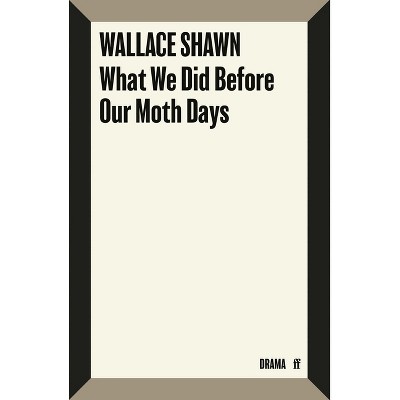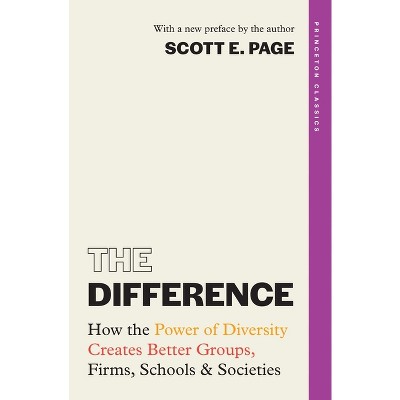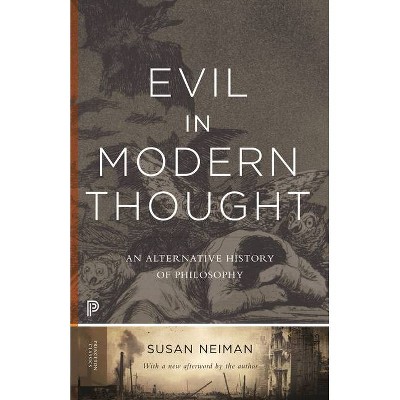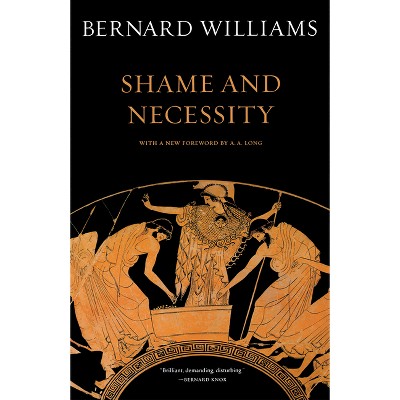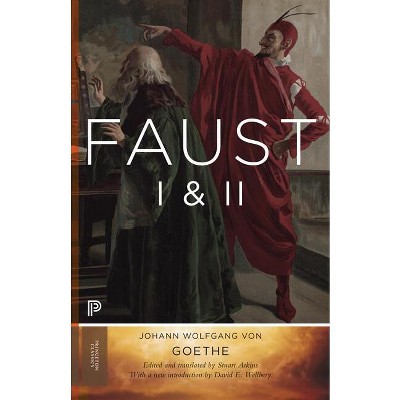Sponsored

Truth and Truthfulness - (Princeton Classics) by Bernard Williams (Paperback)
$19.47Save $2.48 (11% off)
In Stock
Eligible for registries and wish lists
Sponsored
About this item
Highlights
- What does it mean to be truthful?
- About the Author: Bernard Williams (1929-2003) held Chairs of Moral Philosophy at Cambridge, Berkeley, and Oxford.
- 352 Pages
- Philosophy, Ethics & Moral Philosophy
- Series Name: Princeton Classics
Description
Book Synopsis
What does it mean to be truthful? What role does truth play in our lives? What do we lose if we reject truthfulness? No philosopher is better suited to answer these questions than Bernard Williams. Writing with his characteristic combination of passion and elegant simplicity, he explores the value of truth and finds it to be both less and more than we might imagine.
Modern culture exhibits two attitudes toward truth: suspicion of being deceived (no one wants to be fooled) and skepticism that objective truth exists at all (no one wants to be naive). This tension between a demand for truthfulness and the doubt that there is any truth to be found is not an abstract paradox. It has political consequences and signals a danger that our intellectual activities, particularly in the humanities, may tear themselves to pieces. Williams's approach, in the tradition of Nietzsche's genealogy, blends philosophy, history, and a fictional account of how the human concern with truth might have arisen. Without denying that we should worry about the contingency of much that we take for granted, he defends truth as an intellectual objective and a cultural value. He identifies two basic virtues of truth, Accuracy and Sincerity, the first of which aims at finding out the truth and the second at telling it. He describes different psychological and social forms that these virtues have taken and asks what ideas can make best sense of them today. Truth and Truthfulness presents a powerful challenge to the fashionable belief that truth has no value, but equally to the traditional faith that its value guarantees itself. Bernard Williams shows us that when we lose a sense of the value of truth, we lose a lot both politically and personally, and may well lose everything.Review Quotes
"A Bloomberg Best Book of the Year"
"Truth and Truthfulness is an ambitious work, and its journeys into history give it a breadth unusual in these days of increased academic specialization. . . . William's book combines real history and fictional constructs to tell a revealing story that makes us reconsider the meaning of familiar concepts."---Julian Baggini, Philosophers' Magazine
"Truth and Truthfulness is subtle, agile, diligent in its treatment of detail, yet always with an eye on the 'big questions.'. . . It is suffused by a sly Oxonian sense of humour and a keen feeling for the pleasures of philosophical argument. Yet this playfulness does not detract from its underlying seriousness of purpose: this is a defence of the value of truth against those modern sceptics who deny its existence."---Edward Skidelsky, New Statesmen
"[Truth and Truthfulness] shows all Williams's characteristic virtues. He is always a pleasure to read, and as it has often done before, his deft, sparkling intelligence newly illuminates an old philosophical subject, scattering light into many surprising corners as it does so. . . . He is consistently amusing, but at absolutely no cost to the depth of the enterprise. And what a wonderful life it would be if even a small proportion of philosophers could write so well."---Simon Blackburn, Times Literary Supplement
"[A] brilliant and disturbing book. . . . This is a fascinating and riveting work, and it shows, in a way which no other recent work of philosophy has done, that the subject can be both important and comprehensible--and that is a very considerable achievement indeed."---Alasdair Palmer, Sunday Telegraph
"A model of clarity and discernment."-- "Library Journal"
"A new book by Bernard Williams is a big event, and it is not difficult to see why. He writes on important and fundamental issues that are of interest not only to philosophers, but also to anyone who wants to understand contemporary culture and society. He brings to his work an immense scholarship that covers an astonishing range of academic and intellectual concerns and yet he carries it extraordinarily lightly. And above all, he writes with the kind of eloquence, elegance and wit that used to characterise the work of our greatest minds but that has now all but disappeared from academic life. What he writes, people want to read, and what he says, people want to hear."---Ray Monk, Times Higher Education Supplement
"Anyone who wants to understand the relations between the relatively arcane issues concerning truth debated by philosophy professors, and the larger question of what self-image we human beings should have, would do well to read Williams's new book. It is a major work."---Richard Rorty, London Review of Books
"Bernard Williams has been a distinctive presence on the intellectual scene for more than three decades. . . . His writings do not offer the dubious exhilaration of grand philosophical theory, in which messy reality is tamed and caged, but the thrill of seeing pretension punctured by a kind of high-voltage common sense (backed up by impressive erudition). . . . There is no one in philosophy quite like him."---Colin McGinn, New York Review of Books
"Clear and cogent."---Thomas Hibbs, Weekly Standard
"Deftly, and with a certain relish, [Williams] explores the barefaced lying and the many subtler forms of deception and self-deception we practice. . . . The array of arguments he marshals to cast light on the problem leaves little doubt: If you wish to develop your talents, earn the love of another, or pursue justice, then cultivate the virtues of truth."---Peter Berkowitz, Washington Post Book World
"Elegance and subtlety are the hallmarks of Bernard Williams's philosophical style, both in the quality of his thought and the manner of his prose. His contributions have enriched philosophical debate for decades, and as this absorbing book about the truth and the vocations of truth shows, they continue to do so. . . . Williams's careful, eloquent and searching analysis . . . makes a valuable contribution to philosophy."---A. C. Grayling, Literary Review
"If philosophers ever became kings, they would all be like Mr. Williams. His books were clear, funny, dramatic and readable, like great novels. . . . His final book, Truth and Truthfulness, has come along at exactly the right moment. It both describes our current crisis of truth and offers hope for a resolution."---Doug Saunders, Globe & Mail
"Its virtuoso blend of analytic philosophy, classical scholarship, historical consciousness, and uninhibited curiosity marks Truth and Truthfulness unmistakably as a work by Bernard Williams."---Thomas Nagel, New Republic
"Many colleagues consider Williams the most influential voice in contemporary moral philosophy. . . . [This book] may well have a noteworthy impact. It is Williams' reflection on the moral cost of the intellectual vogue for dispensing with the concept of truth. . . . The patient reader will enjoy the rare experience of watching philosophical and historical scaffolding installed, or revealed, beneath everyday expectations and practices of honesty, trust, doubt, deceit and wishful thinking."---Kenneth Baker, San Francisco Chronicle
"The most interesting set of reflections on the values of truth and truth-telling in living memory. [Williams'] grasp of philosophical arguments is astonishing. . . . The book manages to be both learned and passionate without being pretentious. And of course witty; . . . Williams' analytic expertise is combined with an acute sensibility to historical facts, or claims to fact, about the history of practices of telling the truth about the past, or about oneself. He writes about what Western civilisations do and have done in trying to find out and to tell the truth. The book presents what are argued to be human universals about the values of truth, as opposed to the historical circumstances in which particular ways of finding out come into being."---Ian Hacking, Canadian Journal of Philosophy
"This vigorous, crystalline book is an intellectual landmark."---Richard Sennett, Times Literary Supplement
About the Author
Bernard Williams (1929-2003) held Chairs of Moral Philosophy at Cambridge, Berkeley, and Oxford. His books include Making Sense of Humanity; Morality, Ethics and the Limits of Philosophy; Shame and Necessity; and Moral Luck. Miranda Fricker is the Julius Silver Professor of Philosophy at New York University and Codirector of the New York Institute of Philosophy.Dimensions (Overall): 8.0 Inches (H) x 5.25 Inches (W) x .88 Inches (D)
Weight: .73 Pounds
Suggested Age: 22 Years and Up
Series Title: Princeton Classics
Sub-Genre: Ethics & Moral Philosophy
Genre: Philosophy
Number of Pages: 352
Publisher: Princeton University Press
Format: Paperback
Author: Bernard Williams
Language: English
Street Date: May 13, 2025
TCIN: 94077530
UPC: 9780691271767
Item Number (DPCI): 247-39-7554
Origin: Made in the USA or Imported
If the item details aren’t accurate or complete, we want to know about it.
Shipping details
Estimated ship dimensions: 0.88 inches length x 5.25 inches width x 8 inches height
Estimated ship weight: 0.73 pounds
We regret that this item cannot be shipped to PO Boxes.
This item cannot be shipped to the following locations: American Samoa (see also separate entry under AS), Guam (see also separate entry under GU), Northern Mariana Islands, Puerto Rico (see also separate entry under PR), United States Minor Outlying Islands, Virgin Islands, U.S., APO/FPO
Return details
This item can be returned to any Target store or Target.com.
This item must be returned within 90 days of the date it was purchased in store, shipped, delivered by a Shipt shopper, or made ready for pickup.
See the return policy for complete information.
Trending Philosophy

$13.99 - $30.40
MSRP $25.00 - $40.00
4.4 out of 5 stars with 200 ratings

$10.23
was $10.78 New lower price
4.6 out of 5 stars with 23 ratings






